Hamstring Recovery Course
Want To Protect Your
Athletes' Hamstrings?
Get Free Access To The Athletes Authority Robust Hamstring System Designed To Minimise The Risk Of Hamstring Injuries In The Gym Setting.
Our Team Has Been Trusted By:


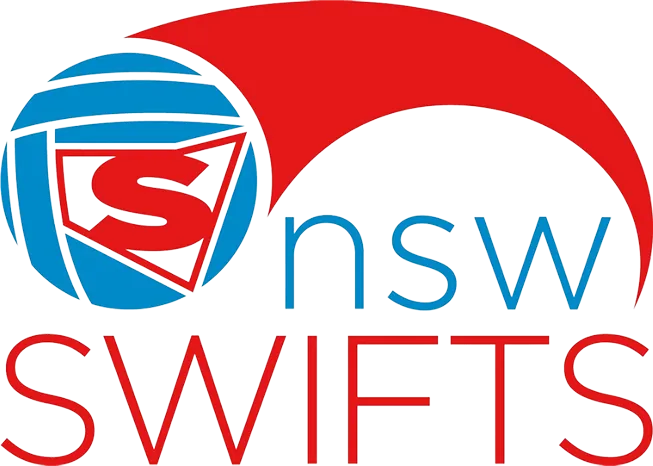


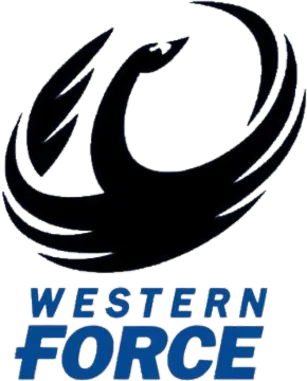
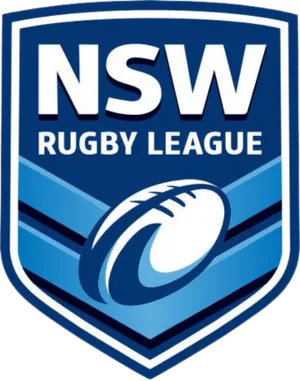







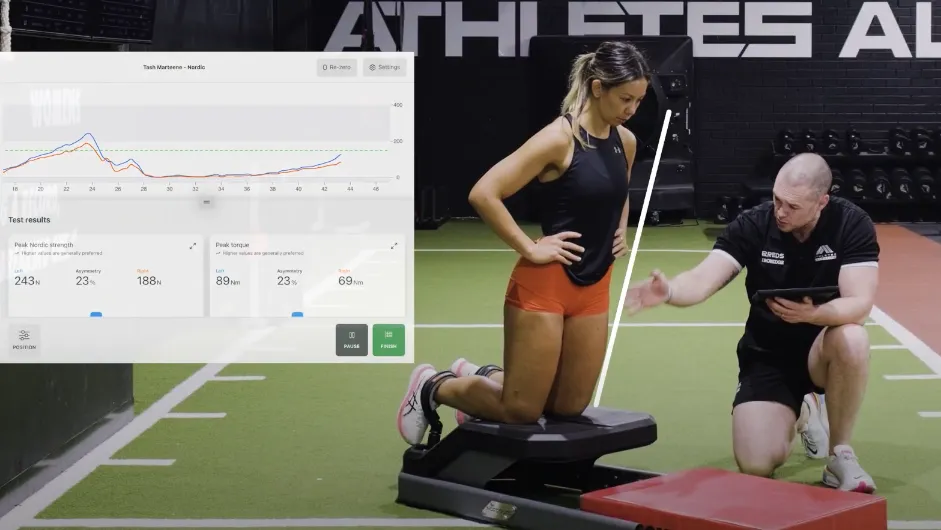
In This 90-Minute Video Course In Partnership With VALD Performance,
You’ll Discover:
Three different options to assess and retest using the Nordbord.
Common mistakes and errors from set-up to understanding data.
The three phase approach to Hamstring training - Distal, Proximal & Integrated and how to implement this seamlessly into your athletes training.
Over 20+ exercises demonstration to ensure you know exactly how to get the most out of each exercise.
How to use the Nordbord as a training tool to maximise it’s effectiveness in your program
our services
WHEN YOUR ATHLETICISM MATTERS TO YOU, OUR PROGRAMS HAVE YOU COVERED.
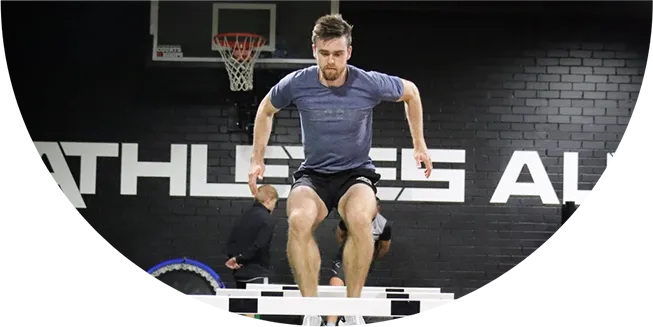
“For Athletes Who Are Hungry For A Competitive Edge”
Athlete Development Program
Improve Athleticism With A Strength & Conditioning Program That Guarantees Results (Or Your Money Back)
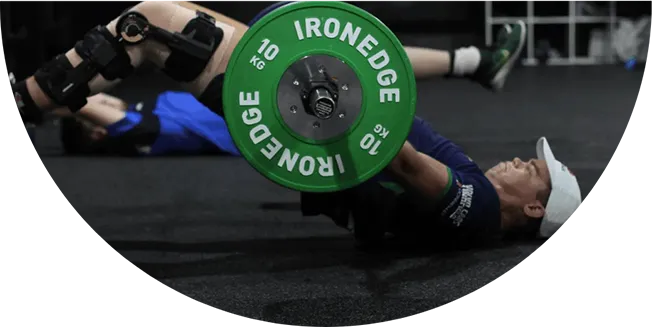
“For Athletes Who Want To Rehab Their Injury, For Good.”
Sports
Physio
Program
Return To Sport With Confidence And Get Back To Doing What You Love, Faster.

"For athletes seeking enhanced speed and agility in team sports."
Speed & Agility Training
Develop The Gift Of Speed And Get Noticed For Your Game-Changing Abilities On The Field Of Play

“For Sporting Parents Who Want To Set Up Their Kids For Success”
Emerging Athlete Program
Helping Sporting Parents Foster Their Kid's Potential & Set Them Up For Success.
Take a virtual tour of Our
strength & conditioning gym
WE BUILT A TRAINING & REHAB FACILITY THAT COULD BE AN ATHLETES’ HOME AWAY FROM HOME. WATCH THE VIDEO TO SEE FOR YOURSELF.
SYDNEY
melbourne
OUR PHILOSOPHY
While An Athlete's Goals May Change, The Pursuit Of Performance Never Ends.
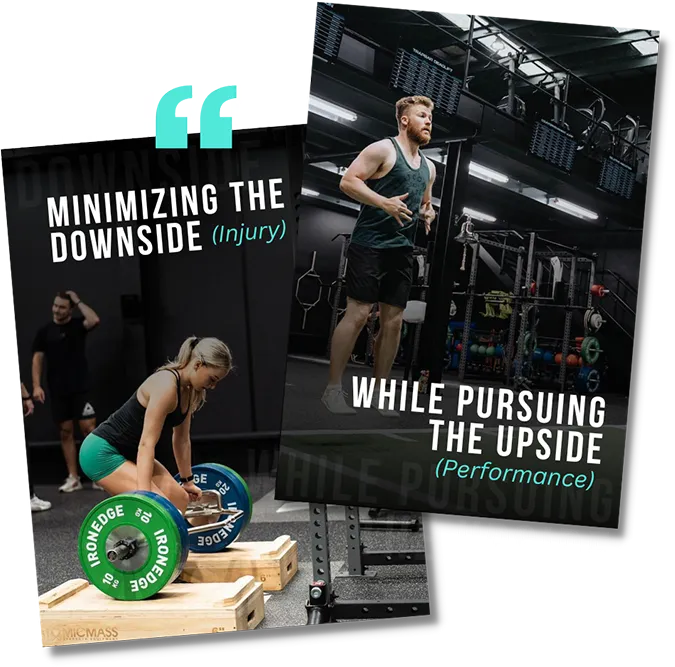
Athletes strive for two timeless objectives: raising their standards and winning. They constantly aim to surpass their previous achievements and believe in their ability to reach greater heights. Winning is an integral part of their DNA; they are driven by the desire to succeed. To attain such success, they must create a personalized GamePlan.
Our training system is built on the philosophy of "Minimizing the Downside (Injury) While Pursuing the Upside (Performance)." It empowers athletes at all stages to enhance their performance. Whether you're an amateur or an Olympian, our comprehensive approach combines in-person coaching with virtual and mobile support. Develop a resilient body and mindset for success with our expert guidance. Achieve more with our performance and rehabilitation programs.
350+
ATHLETES WHO TURNED PRO
450+
PRO ATHLETES COACHED
500+
5-STAR GOOGLE REVIEWS
IN THE NEWS
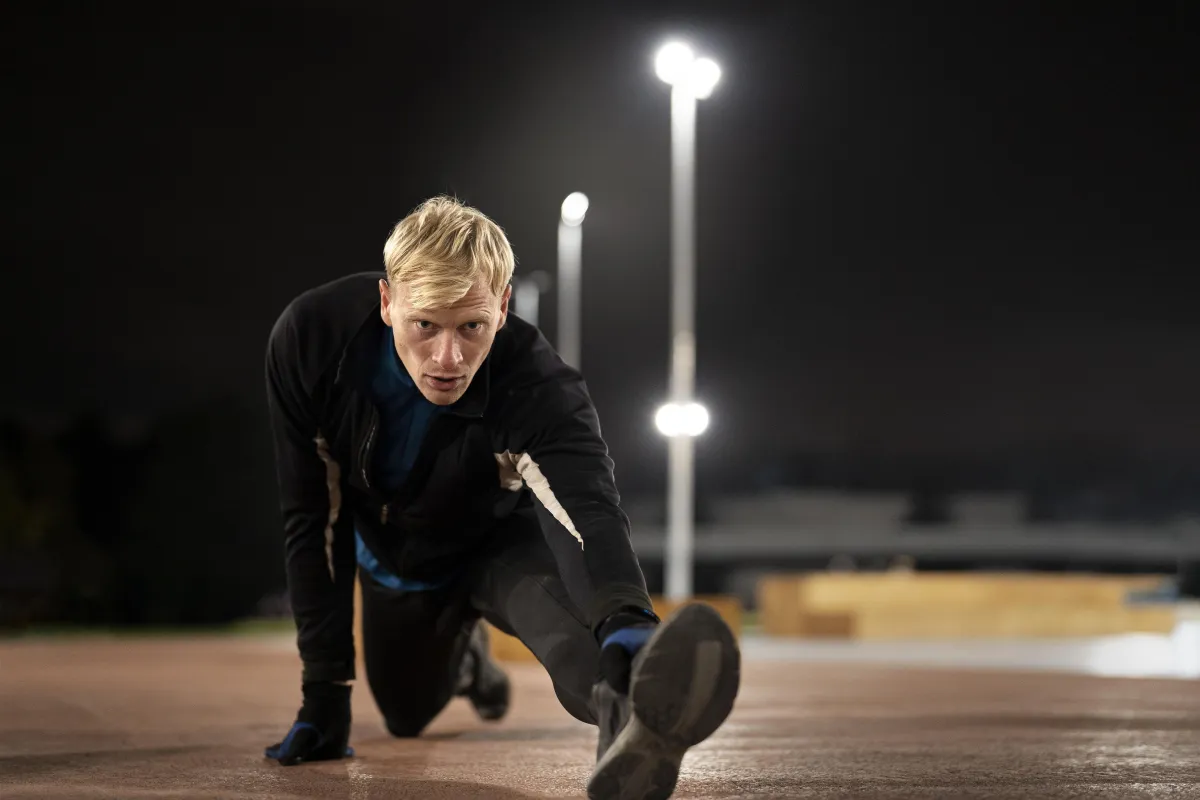
Mental Toughness and Recovery: How Mastering Your Mental Game Can Overcome Setbacks and Stay Positive
Injury, fatigue, and setbacks are part of every athlete’s journey. How you handle these challenges can make all the difference in your recovery and future performance. Mental toughness is the ability to stay focused, stay positive, and persevere even when the going gets tough. For athletes recovering from injury or facing setbacks, developing this mindset is essential to bouncing back stronger and faster.
What Is Mental Toughness?
Mental toughness is more than just a "tough it out" attitude. It involves resilience, focus, confidence, and the ability to manage emotions during difficult times. For athletes, mental toughness means staying committed to the process, even when faced with challenges such as injuries, loss of form, or performance anxiety.
While physical training is vital, the mind plays a critical role in your ability to recover from setbacks. Building mental toughness will help you stay positive and motivated through the ups and downs of rehabilitation.
1. Embrace a Growth Mindset
A growth mindset is the belief that you can improve with effort, learning, and perseverance. Instead of seeing setbacks as failures, athletes with a growth mindset view them as opportunities to learn and grow. This mindset is essential for recovery because it allows you to focus on the progress you're making, even if it feels slow at times.
How to Develop a Growth Mindset:
Focus on progress: Celebrate small victories, such as hitting rehab milestones or regaining flexibility.
Learn from setbacks: Instead of feeling discouraged, look at setbacks as learning experiences that guide you to a better recovery plan.
Believe in your ability to improve: Trust that your efforts will pay off, even when the road ahead seems long.
2. Stay Present and Practice Mindfulness
When recovering from an injury or setback, it’s easy to get overwhelmed thinking about the future. Will you ever be as fast or strong as you were before? Will you reach your goals in time for the next season? While it's natural to worry about the future, it can actually hinder your recovery.
Mindfulness is the practice of staying present and focused on the current moment. By focusing on what you can control—like your rehab exercises and nutrition—you can reduce stress and improve the quality of your recovery.
How to Practice Mindfulness:
Daily meditation: Take 5-10 minutes a day to clear your mind and focus on your breath. This can help you manage stress and enhance focus.
Mindful movement: When performing rehab exercises, focus on the quality of each movement instead of rushing to complete the set. This helps you avoid overexertion and promotes faster healing.
Stay present in the moment: Whenever negative thoughts about the future arise, acknowledge them, and bring your focus back to what you're doing right now.
3. Visualise Your Success
Visualization is a powerful mental technique used by top athletes to stay positive and motivated. It involves mentally rehearsing your recovery and imagining yourself performing at your best. Visualization has been shown to improve performance, reduce anxiety, and increase confidence.
How to Use Visualisation for Recovery:
Visualise your healed body: Spend a few minutes each day imagining yourself fully recovered, back in action, and performing at your peak.
Visualise overcoming setbacks: Picture yourself successfully navigating challenges in your rehab process, from pain to frustration, with strength and determination.
Incorporate all your senses: When visualizing, engage all your senses—see the scene, feel the movement, hear the sounds of the game, and experience the emotions of success.
4. Build a Support Network
Recovery can feel isolating, especially if you're sidelined from your sport for an extended period. Surrounding yourself with a support network of coaches, teammates, family, and friends can help you stay positive and focused on your goals.
How to Build Your Support System:
Stay in touch with your team: Even if you can’t participate in every practice, stay involved in team activities and cheer on your teammates.
Seek advice from coaches: Your coaches have likely dealt with similar setbacks and can offer guidance to keep you motivated.
Lean on family and friends: Share your struggles and victories with loved ones who can offer emotional support.
5. Develop a Routine and Stick to It
One of the keys to maintaining mental toughness during recovery is sticking to a routine. When you have a structured plan for your rehab exercises, nutrition, rest, and mental training, you create a sense of control and consistency. This routine will help you stay focused on your recovery goals and make each day feel productive.
How to Build a Recovery Routine:
Set short-term goals: Break down your recovery into smaller, achievable goals. Celebrate each one to keep your motivation high.
Stick to your rehab exercises: Consistently follow your rehab program, even on days when you don’t feel like it. Small progress each day adds up over time.
Prioritize rest and recovery: Recovery isn’t just about rehab exercises. Be sure to prioritize rest, sleep, and nutrition to support healing.
Get the Support You Need to Bounce Back Stronger
Building mental toughness takes time and effort, but it’s an essential part of your recovery journey. Whether you're recovering from an injury or facing any other setback, remember that resilience and focus can help you overcome almost anything.
Conclusion
Mental toughness is a vital component of your recovery journey. By embracing a growth mindset, practicing mindfulness, visualizing success, building a support network, and sticking to a routine, you’ll be well on your way to overcoming setbacks and returning to peak performance.
At Athletes Authority, we help athletes conquer their doubts, excel under pressure, and dominate their sport with Master Your Mental Game - The Ultimate Athlete's Guide to Peak Performance.
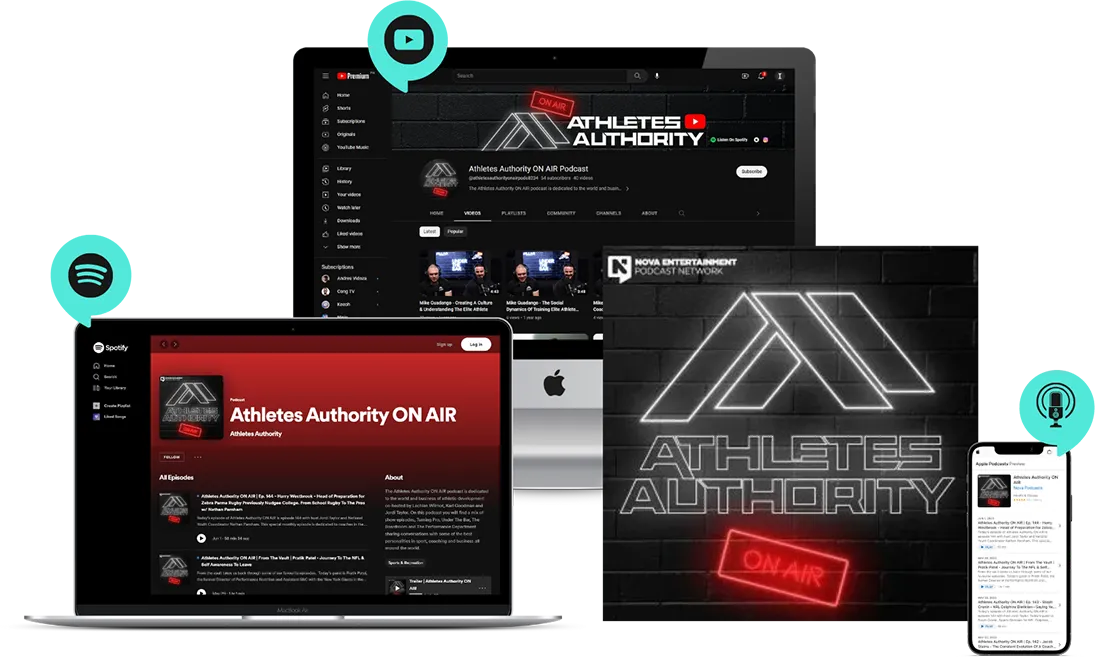
LISTEN TO THE PODCAST
Athletes authority on air
The Podcast that interviews the leaders in the Strength & Conditioning Community.
MELBOURNE LOCATION
SYDNEY LOCATION
© 2023, Athletes Authority | All Rights Reserved
Website & Marketing Powered By Gymini
































